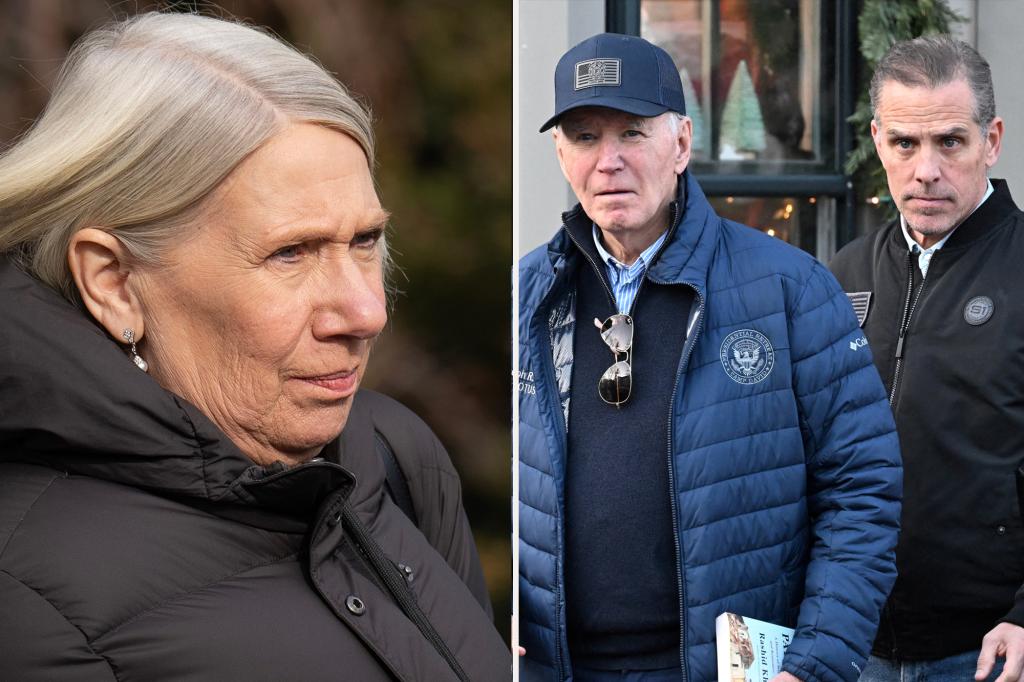Anita Dunn, a close confidante and former senior advisor to President Biden, expressed a nuanced perspective on Hunter Biden’s recent pardon. While firmly supporting the president’s decision to grant clemency to his son, Dunn voiced sharp criticism of the rationale and timing of the pardon, labeling it an “attack on our judicial system.” This critique, coming from a prominent figure within the Biden inner circle, underscores the complexities and potential controversies surrounding the pardon.
Dunn’s central argument revolves around the perceived discrepancy between President Biden’s commitment to upholding the rule of law and the justification presented for pardoning his son. The president’s assertion that Hunter was “selectively, and unfairly, prosecuted” clashes with the established legal proceedings that led to Hunter’s conviction on both gun and tax charges. Dunn suggests that this justification undermines the very principle of equal justice under the law that President Biden has consistently championed throughout his career. The timing of the pardon, shortly after Hunter’s conviction, further fueled concerns about potential preferential treatment and the appearance of political influence.
Hunter Biden’s legal troubles stemmed from a series of offenses, including lying on a federal gun purchase form about his drug addiction and failing to pay over $1.4 million in taxes. The latter involved extravagant spending on personal indulgences, further complicating the public perception of the pardon. While acknowledging Hunter’s personal struggles and the possibility of rehabilitation, Dunn emphasized the importance of due process and the need to avoid even the appearance of undermining the justice system. Her concern echoes a broader sentiment that the pardon could erode public trust in the impartiality of the legal system, particularly given the president’s explicit commitment to restoring faith in the rule of law.
The breadth of the pardon, encompassing any potential offenses committed by Hunter Biden within a specific timeframe, also raised eyebrows. This sweeping nature, extending beyond the specific charges for which Hunter was convicted, fueled speculation about the motives behind the pardon and the potential for undisclosed offenses. The fact that the pardon followed repeated denials from the White House and the president himself further contributed to the controversy. This apparent reversal of position, coupled with the lack of transparency surrounding the decision-making process, reinforced the perception of political maneuvering and raised questions about the integrity of the pardon.
Dunn’s remarks shed light on the internal dynamics within the Biden administration regarding the pardon. Her assertion that White House officials were not involved in the process suggests that the decision was primarily driven by the Biden family and their legal counsel. This separation between the White House and the pardon process, while potentially meant to avoid the appearance of direct presidential involvement, ultimately contributed to the controversy. The lack of consultation with key advisors, such as Dunn herself, could be interpreted as a strategic move to shield the president from political fallout, but it also resulted in a disconnect between the official narrative and the perceived reality of the situation.
Dunn’s hypothetical scenario, where a pardon granted at the end of President Biden’s term and framed as an act of compassion might have been better received, further highlights the importance of context and presentation. By contrasting this hypothetical scenario with the actual circumstances of the pardon, Dunn implicitly criticizes the chosen approach. The timing, rationale, and scope of the pardon, as executed, created an impression of preferential treatment and a disregard for the established legal processes, ultimately undermining the very principles of justice and fairness that the president had vowed to uphold. This perceived contradiction, as articulated by a trusted advisor, underscores the potential damage to President Biden’s image and his commitment to the rule of law.










